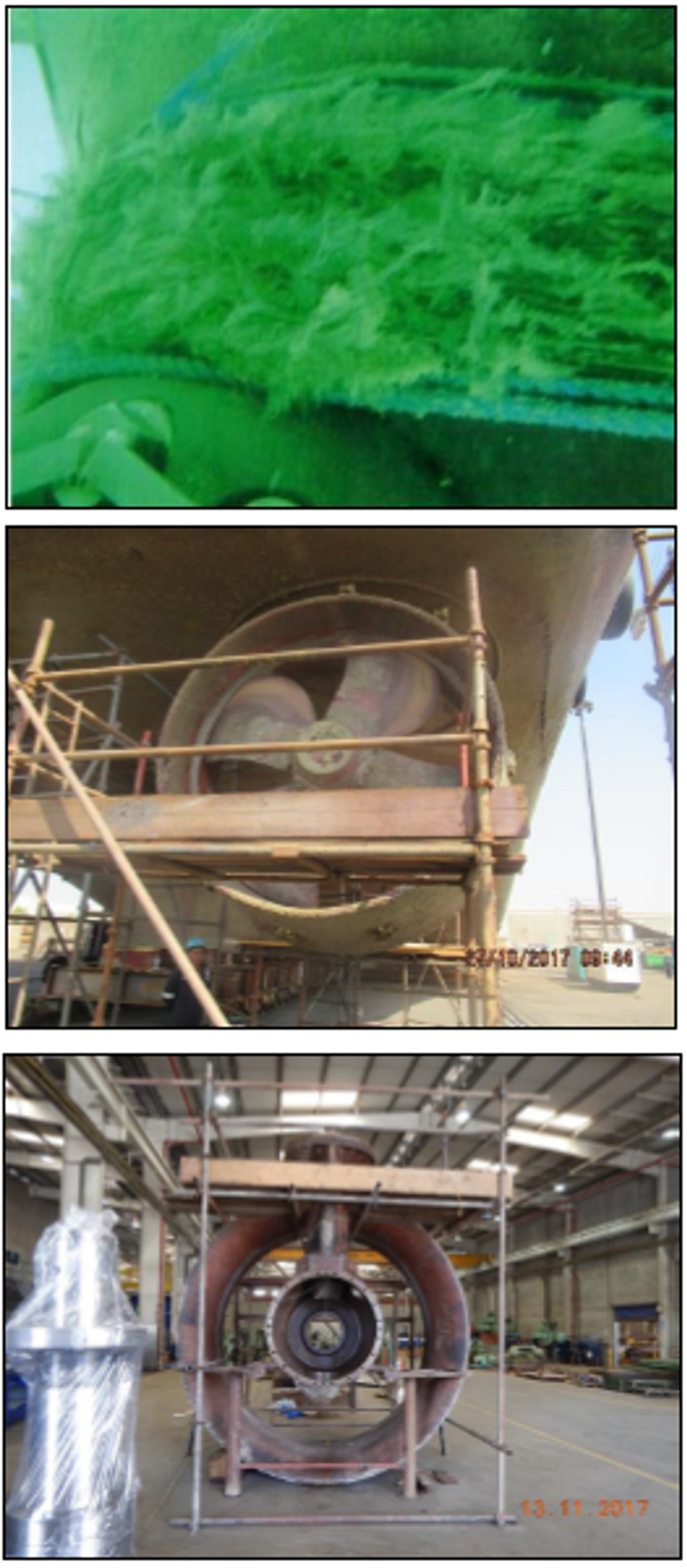Costly damage to azimuth thruster caused by fishing gear
- Safety Flash
- Published on 17 September 2018
- Generated on 22 February 2026
- IMCA SF 21/18
- 2 minute read
Jump to:
A vessel equipped with two azimuth thrusters, was performing operations alongside an offshore platform, when inappropriate vibrations were noted from the starboard azimuth thrusters and its hydraulic pump.
What happened?
Investigation revealed the presence of seawater in the thruster oil system. The vessel left the platform using the port engine only and an underwater survey of the propellers was carried out on location. That underwater inspection showed rope and fishing nets fouling the starboard propeller and azimuth unit. The presence of oil around the propeller hub was also noted. The vessel had to go into dry dock, and the thruster assembly, including propeller blades and Kort nozzle, had to be removed for repair.
Repairs cost hundreds of thousands of dollars and the vessel was off hire for nearly ninety days.

What went wrong? What were the causes?
- Rope and fishing net fouling found on the starboard azimuth thruster.
- The seal was damaged by the fishing net.
- Seawater presence was observed in the hydraulic system.
- Reduced lubrication quality of the hydraulic oil caused damage to thruster components.
- Vibrations were noted on the hydraulic pump. Suction filters were found clogged with water and oil residues.
During the overhaul, additional delays were caused by:
- Some parts which were not included in initial order for the full overhaul scope.
- Delay in spares delivery by the manufacturer.
What lessons were learned?
The thruster manual states the hydraulic oil should be visually inspected daily; this was arranged by crew, but the task was not present in the planned maintenance system (PMS).
What actions were taken?
- Crew should check equipment manuals and ensure correct maintenance intervals have been added to the PMS.
- Manufacturer to study the possibility of installing a net cutter on the propeller shaft.
- In order to recognize water ingress caused by leakage quickly, equipment to facilitate random chemical sampling to determine water content should be installed.
Related Safety Flashes
-
IMCA SF 08/18
11 April 2018
-
-
IMCA SF 17/16
30 June 2016
IMCA Safety Flashes summarise key safety matters and incidents, allowing lessons to be more easily learnt for the benefit of the entire offshore industry.
The effectiveness of the IMCA Safety Flash system depends on the industry sharing information and so avoiding repeat incidents. Incidents are classified according to IOGP's Life Saving Rules.
All information is anonymised or sanitised, as appropriate, and warnings for graphic content included where possible.
IMCA makes every effort to ensure both the accuracy and reliability of the information shared, but is not be liable for any guidance and/or recommendation and/or statement herein contained.
The information contained in this document does not fulfil or replace any individual's or Member's legal, regulatory or other duties or obligations in respect of their operations. Individuals and Members remain solely responsible for the safe, lawful and proper conduct of their operations.
Share your safety incidents with IMCA online. Sign-up to receive Safety Flashes straight to your email.